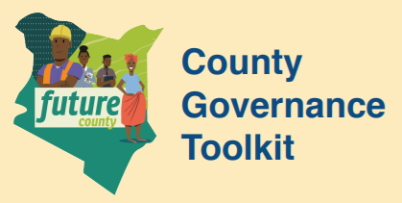The Constitution of Kenya (2010)
|
Article |
Significance |
|
Article 33 (1) (a)
|
Every person has the right to freedom of expression which includes – freedom to seek, receive or impart information or ideas. |
|
Article 35 |
(1) Every citizen has the right of access to— (a) information held by the State; and (b) information held by another person and required for the exercise or protection of any right or fundamental freedom. (2) Every person has the right to the correction or deletion of untrue or misleading information that affects the person. (3) The state shall publish and publicise any important information affecting the nation. This constitutional guarantee gave the basis for the enactment of a national ATI law in accordance with the above provisions. |
|
Article 232 (1) (f) |
The values and principles of public service include—transparency and provision to the public of timely, accurate information. |
Other Kenyan Legislation and Access to Information
|
Legislation |
Relevant Sections |
|
County Governments Act (2012)
|
Section 87 of Part VIII of the Act recognises that timely access to information, data and documents and other information either relevant or related to policy formulation and implementation is one of the main principles influencing citizen participation in the management of a county government. Section 96 of the Act expressly makes provision for the right of access to information at the county levels. Section 96 provides that: (1) Every Kenyan citizen shall on request have access to information held by any county government or any unit or department thereof or any other state organ in accordance with Article 35 of the Constitution. (2) Every county government and its agencies should designate an office to be used to ensure access to information as required by sub section (1). (3) Every county government should enact legislation to ensure access to information (subject to national legislation). Section 93 Public communication and access to information shall be based on the following principles: (a) integration of communication in all development activities. (b) observation of access to information by county media in accordance with Article 35 of the Constitution. (c) observation of media ethics, standards and professionalism. Section 95 (1) County communication framework: A County government shall establish mechanisms to facilitate public communication and access to information in the form of media with the widest public outreach in the county, which may include—(a) television stations; (b) information communication technology centres; (c) websites; (d) community radio stations; (e) public meetings; and (f) traditional media. |
|
Public Service (Values and Principles) Act (2015)
|
Enacted to give effect to Article 232 of the Constitution. Section 8 Transparency and provision to the public of timely accurate information (1) A public officer shall not— (a) give information that the public officer knows or ought to know to be inaccurate; or (b) unduly delay the provision of any information where required to provide that information. |
|
Public Finance Management Act (2012) |
Section 10 (1) (f) The Parliamentary Budget Office shall—subject to Article 35 of the Constitution, ensure that all reports and other documents produced by the Parliamentary Budget Office are prepared, published and publicised not later than fourteen days after production; and Section 131 (6) The County Executive Committee member for finance shall take all reasonably practicable steps to ensure that the approved budget estimates are prepared and published in a form that is clear and easily understood by, and readily accessible to, members of the public.
|
|
Ethics and Anti-Corruption Commission Act
|
Section 29 Management of Information (1) The Commission shall publish and publicise important information affecting the nation as required by law (2) A request for information by a citizen— (a) to be addressed to the Secretary or such other person as the Commission may for that purpose designate; (b) may be subject to the payment of a reasonable fee; and (c) may be subject to confidentiality requirements of the Commission. (3) Subject to Article 35 of the Constitution, the Commission may decline to give information to an applicant on the following grounds— (a) the request is unreasonable in the circumstances; (b) the information requested is at a deliberative stage by the Commission; (c) failure of payment of a prescribed fee; or (d) failure of the applicant to satisfy confidentiality requirements by the Commission. (4) The right of access to information under Article 35 of the Constitution is limited to the nature and extent specified under this section. (5) Every member and employee of the Commission shall sign a confidentiality agreement. |
|
Public Archives and Documentation Service Act |
Section 6 (1) Subject to any written law prohibiting or restricting the disclosure of information obtained from members of the public and to the provisions of this section, public archives which have been in existence for a period of not less than thirty years may be made available for public inspection, and it shall be the duty of the Director to provide reasonable facilities at such times, and on the payment of the prescribed fees, for members of the public to inspect or obtain copies of, or extracts from, such public archives.
|
